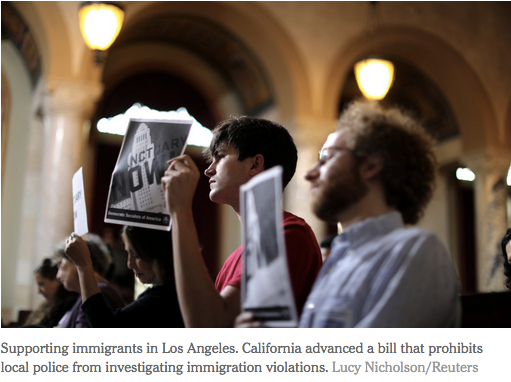A 42-year-old immigrant was on her way to church in Mendota, a small city in California’s Central Valley, one afternoon last month when the police stopped her because the tinted windows on her 2006 Nissan were too dark. What happened next says much about the growing conflict between states like California and the Trump administration.
After inspecting her license, the police officer returned to the car and asked the woman, a mother of two, whether she knew that a deportation order had been issued against her. Yes, she replied, she was supposed to appear in front of an immigration judge in Texas nearly 15 years ago, but had no way of getting there.
After several minutes, the officer released her, but not before calling the federal immigration authorities. The police officer informed her that Immigration and Customs Enforcement officers would come to her house. Fearing deportation to El Salvador, the woman did not return home — neighbors informed her that immigration officers appeared at her front door half an hour after she was pulled over — and she has not gone back since, one of her lawyers said.
For the Trump administration, that kind of assistance from local police officers is a model. For California lawmakers, it is the clearest evidence yet of the need to strictly curb communication between local law enforcement and federal immigration officials.




